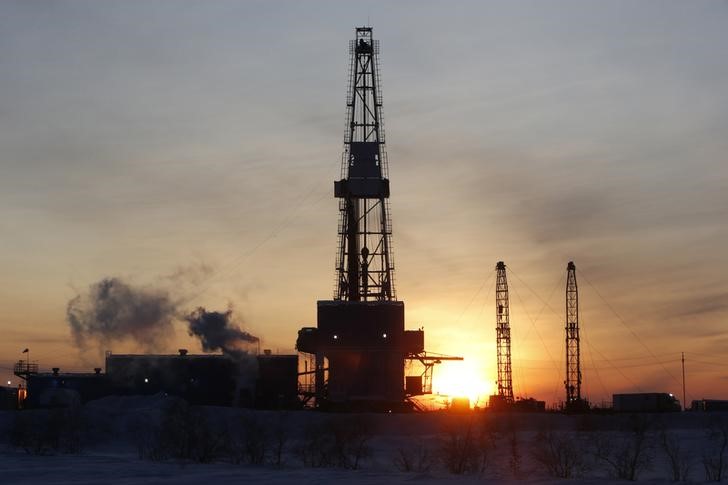By Ambar Warrick
Investing.com-- Oil prices rose on Tuesday as sharp losses in the prior session invited some bargain buying and as markets bet on a recovery in Chinese demand, although concerns over rising U.S. interest rates kept investors on edge.
Crude markets were hit with renewed selling pressure on Monday after stronger-than-expected U.S. economic data ramped up fears of persistent inflationary pressures, which could keep interest rates elevated for longer than expected. This boosted the dollar and weighed on oil prices.
Monday’s losses largely unwound recent gains made on expectations that China, the world’s largest oil importer, will see a resurgence in demand with the lifting of its anti-COVID measures.
Several cities in the country relaxed some COVID measures, with reports suggesting that the government will announce the easing of more curbs later this week.
Brent oil futures rose 0.3% to $83.28 a barrel, while West Texas Intermediate crude futures rose 0.8% to $77.58 a barrel by 20:51 ET (01:51 GMT). Both contracts slumped between 3% and 5% on Monday in highly volatile trade.
Crude prices had initially started the week on stronger footing amid optimism over a Chinese reopening. But this was swiftly cut short by the U.S. data, as well as uncertainty over Russian supply in the face of a new Western ban on supplies from the country.
A U.S. and European Union-led price cap on Russian oil came into effect from Monday, limiting the price of Russian crude to $60 a barrel. Moscow said it will not accept the price cap, and is preparing a response to the move.
Reports had earlier suggested that Russia will cut its production to counter the cap, a move that could tighten global crude supply. Russia’s opposition to the price cap is also expected to cause more disruption in crude markets.
But Russia’s allies in the Organization of Petroleum Exporting Countries agreed to keep production steady for the time being, the results of their last meeting for the year showed.
Anticipation of the Federal Reserve’s next meeting is now expected to keep crude markets rangebound in the near-term. The central bank is widely expected to hike interest rates by a relatively smaller 50 basis points next week.
But while the Fed signaled it will raise rates by a smaller margin, the central bank warned that U.S. rates could peak at much higher-than-expected levels, especially if inflation proves to be stubborn.
